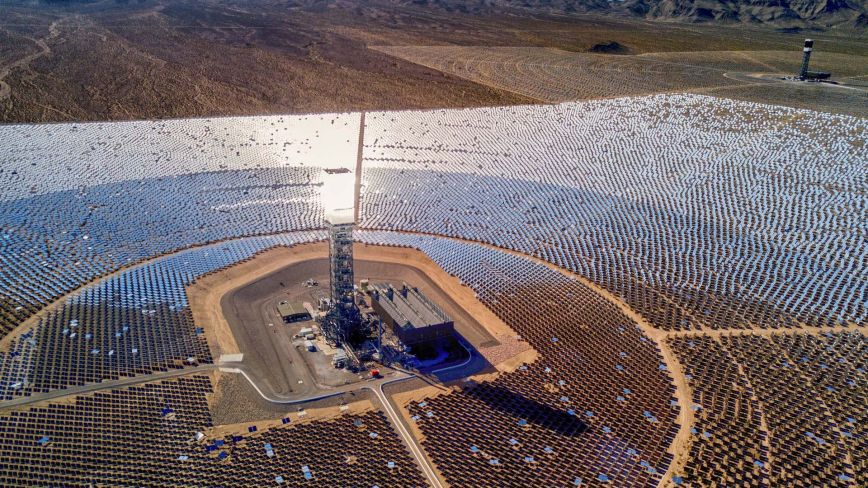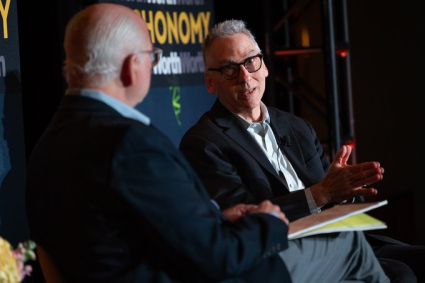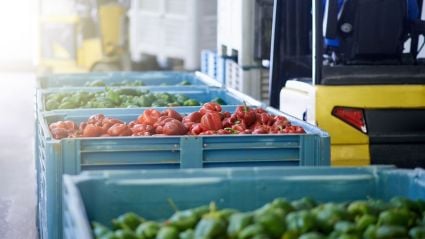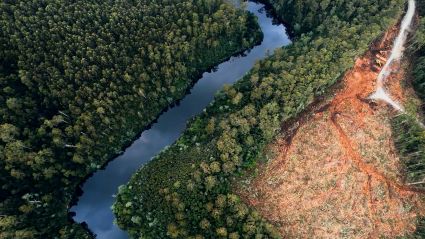

Capital Deployment for Global Climate and Economic Resiliency
Despite growing urgency, the global climate response remains fragmented, with capital and collaboration failing to reach the regions and sectors that need them most. As a trusted nonprofit, nonpartisan think tank, the Milken Institute – working internationally across finance, philanthropy, and health – convenes local and global leaders who direct investment capital and philanthropy into high-impact climate solutions and high-need areas, ensuring that funding flows where it is needed most, in ways that are sustainable, scalable, and adaptable to shifting global and regional dynamics. Through data-driven research and impact-driven programs, we inform private sector strategy and public policy to accelerate and deliver real-world climate action.
In the lead-up to COP30 in Brazil, the Institute will take its climate initiatives to São Paulo this November with a two-day event focused on sustainability, climate finance, and investment. Through a series of curated public and private sessions, we will bring together regional and global stakeholders to elevate Latin American priorities, mobilize capital, and help shape a more inclusive and investment-ready agenda for COP30 and beyond. Looking beyond Brazil, the Institute is deepening its engagement with fellow asset owners and investors to align capital deployment with locally led solutions.
Accelerating Capital Deployment for Scalable Climate Impact
The Milken Institute connects the dots between investors and philanthropists who direct funding where it is needed most, driving transformation at scale.

Innovating Financial Models to Bridge the Climate Investment Gap
The Milken Institute develops new, strategic, data-driven mechanisms to close the climate finance gap, ensuring capital flows efficiently and effectively to high-impact solutions.

Designing Solutions for Food Systems Resilience, Nutrition, and Sustainability
The Milken Institute mobilizes action and innovation to transform food systems, ensuring they are resilient, nutritious, and sustainable, while driving economic and environmental stability.

Featured Content
 Priorities for Strategic Climate and Environmental PhilanthropyClimate disasters—including intensified droughts, wildfires, storms, and flooding—are on the rise globally, with cascading negative impacts on communities and ecosystems.
Priorities for Strategic Climate and Environmental PhilanthropyClimate disasters—including intensified droughts, wildfires, storms, and flooding—are on the rise globally, with cascading negative impacts on communities and ecosystems. Despite Significant Challenges & Economic Anxiety, Business Leaders and Americans Align Around New Strategies to Offset Risk According to New Milken Institute-Harris PollU.S. business leaders and Americans alike are confronting significant geo-economic challenges, according to a new Milken Institute-Harris Poll report, “Building A Resilient America: The New Consensus for Action.”
Despite Significant Challenges & Economic Anxiety, Business Leaders and Americans Align Around New Strategies to Offset Risk According to New Milken Institute-Harris PollU.S. business leaders and Americans alike are confronting significant geo-economic challenges, according to a new Milken Institute-Harris Poll report, “Building A Resilient America: The New Consensus for Action.” Investing In Climate Futures: Trends and Opportunities In Green
Investing In Climate Futures: Trends and Opportunities In GreenMilken Institute’s Dan Carol, Senior Director of Finance, joined Techonomy Climate West to explore green finance trends in a conversation with Jim McCann, Chairman of Worth Media Group.
 Recalibrating Climate Finance 2025-2035The race to decarbonize the global economy depends on the success of efforts to unlock and mobilize trillions of dollars to finance climate mitigation and adaptation, especially for the countries and populations most vulnerable to the effects of climate change. Learn more about the high-impact climate deployment strategies we are recommending for the next decade.
Recalibrating Climate Finance 2025-2035The race to decarbonize the global economy depends on the success of efforts to unlock and mobilize trillions of dollars to finance climate mitigation and adaptation, especially for the countries and populations most vulnerable to the effects of climate change. Learn more about the high-impact climate deployment strategies we are recommending for the next decade. How Philanthropy Can Build Resilient Food Supply Chains
How Philanthropy Can Build Resilient Food Supply ChainsFrom the COVID-19 pandemic to geopolitical conflicts, and catastrophic steering failures on cargo ships, as reported by NPR and The New York Times, the world has seen how a weak link in a supply chain can have far-reaching consequences for businesses and livelihoods, restricting consumer access to everything from food staples to essential manufacturing components.
Capital Deployment for Global Climate and Economic Resiliency
Most Recent Content

Cross-Sector Collaboration for Global Financing Solution to Address Deforestation
The preservation of the world’s tropical forests is a critical challenge. Globally, deforestation continues to rise, driven by socioeconomic factors and the compounding effects of climate change, driving biodiversity loss and water...Read Essay
Our Team

Matthew Aleshire

Dan Carol

Sara ElShafie, PhD

Holly Freishtat

Emily Musil, PhD

